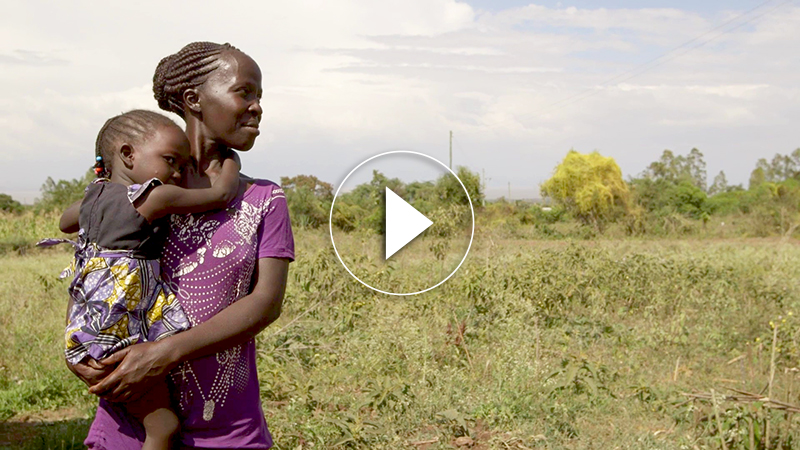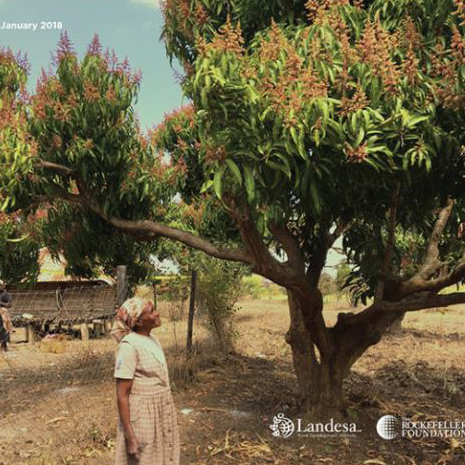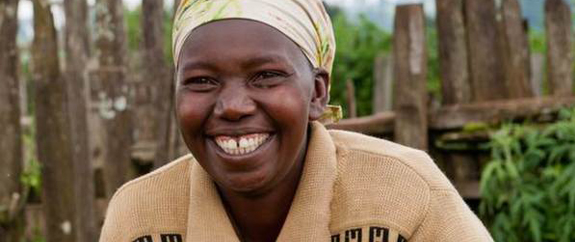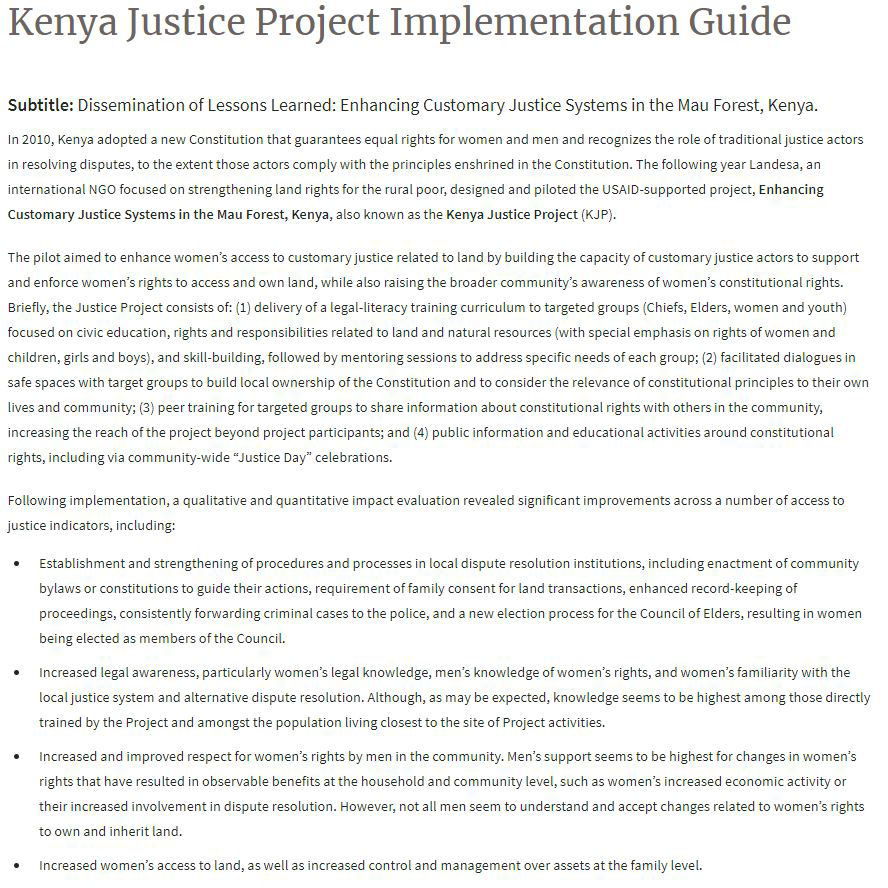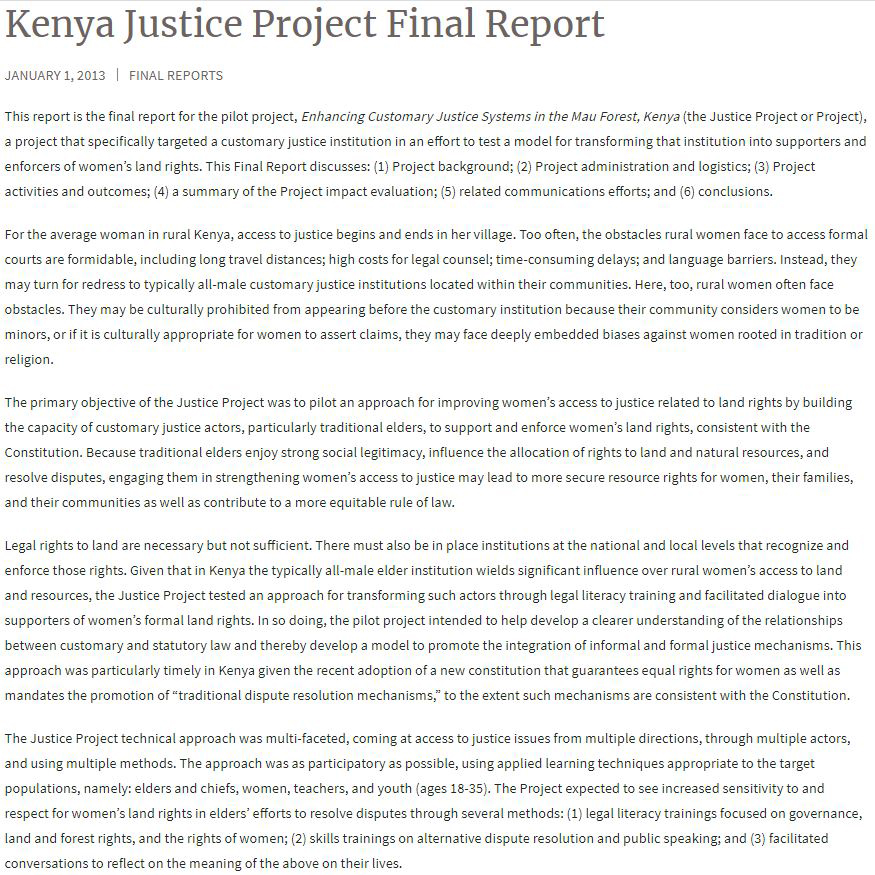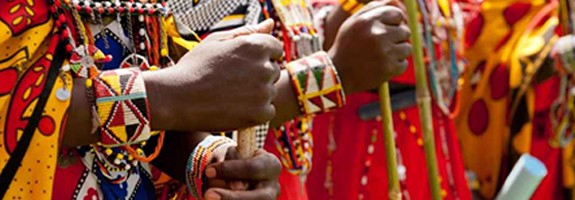Resources
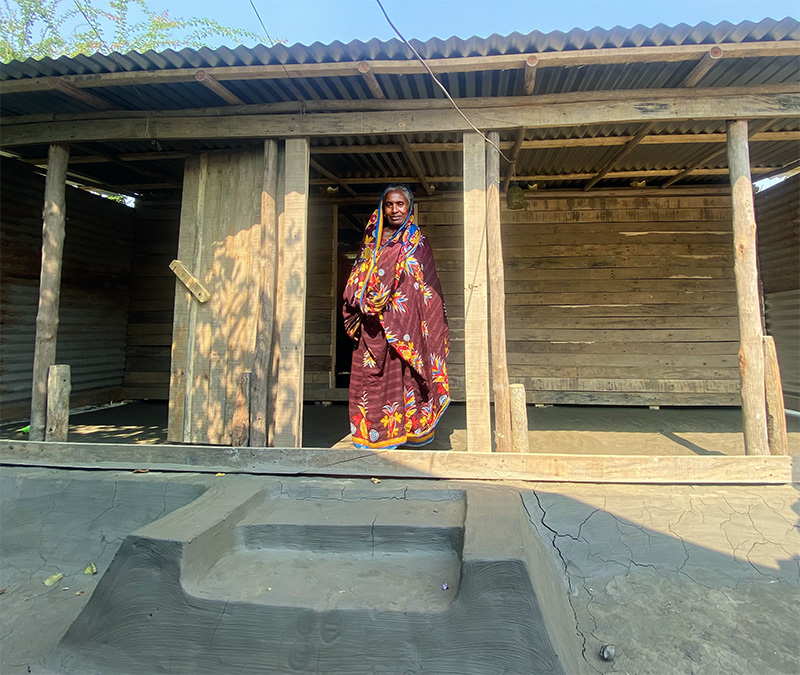
Featured resource
Watch a preview from our upcoming Sundance-funded documentary, read up on land rights for rural women, and learn about upcoming Landesa events.
This paper explores the implications of Kenya’s land tenure situation on the Rockefeller Foundation’s Yieldwise initiative in the Kenyan mango value chain.
When her husband died in 2009, Gladys Chepkorir had no time to linger on the grief. “Immediately after he died, his family started to ask me for the title deed,” she said. Her mother-in-law told her that in spite of the three daughters Gladys and her husband had together, Gladys’ husband had died “like a tree without limbs, because he died without heirs, without sons.”
In 2010, Kenya adopted a new Constitution that guarantees equal rights for women and men and recognizes the role of traditional justice actors in resolving disputes, to the extent those actors comply with the principles enshrined in the Constitution. The following year Landesa designed and piloted the USAID-supported project, Enhancing Customary Justice Systems in the Mau Forest, Kenya, also known as the Kenya Justice Project (KJP).
The primary objective of the Justice Project was to pilot an approach for improving women’s access to justice related to land rights by building the capacity of customary justice actors, particularly traditional elders, to support and enforce women’s land rights, consistent with the Constitution.
For the first time, women in Kenya are helping to settle land disputes as traditional village elders.

